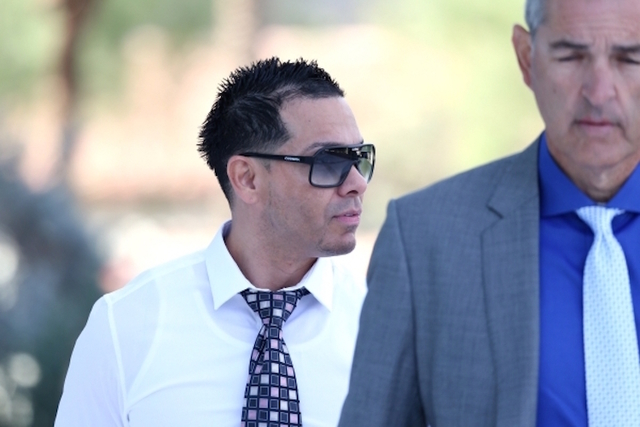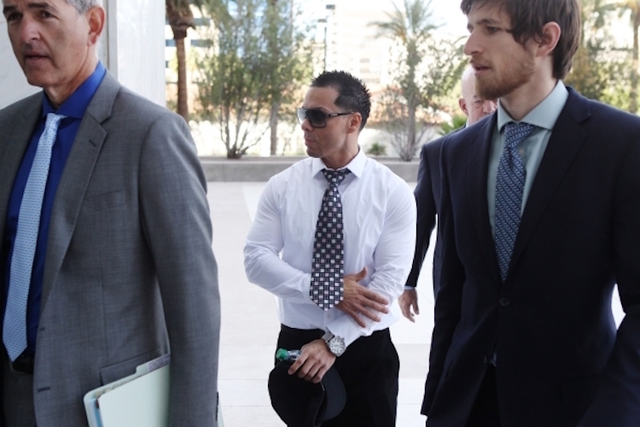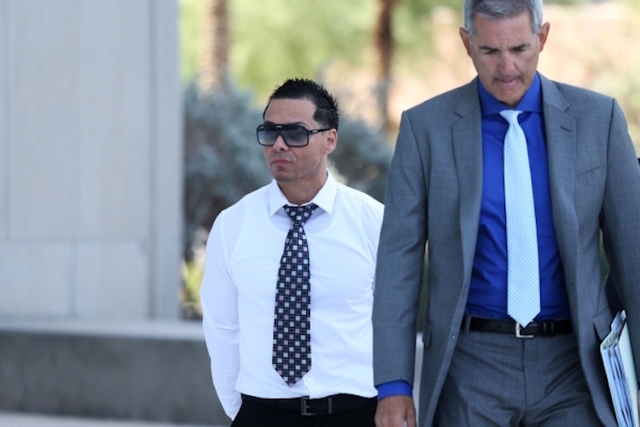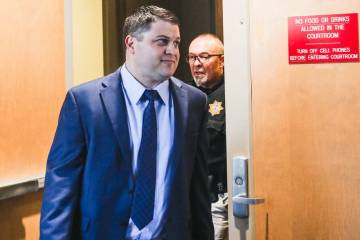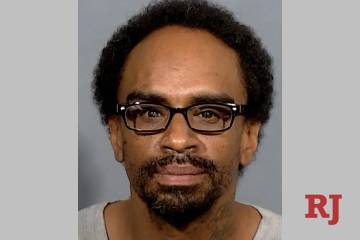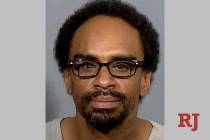Las Vegas man appeals to withdraw guilty plea in sex tapes extortion case
Lawyers for a Las Vegas man convicted of extorting a wealthy businessman with sex tapes have asked a federal appeals court to throw out his prison sentence and let him fight to withdraw his guilty plea.
In their opening brief with the 9th U.S. Circuit Court of Appeals in San Francisco, attorneys Kathleen Bliss and Jason Hicks argued that a federal judge in Las Vegas failed to give their client, Ernesto Ramos, a chance to show that he was pressured into pleading guilty as a way of keeping the married businessman’s identity secret.
Ramos was sentenced to 366 days in prison and has until March 28 to surrender.
Bliss and Hicks also cast suspicion in their brief on the Las Vegas businessman’s conduct in the scheme over the sex tapes, alleging he was “more of a perpetrator than a victim.”
And they accused the businessman, whom they said is “internationally known,” of paying Ramos’ stripper girlfriend thousands of dollars at a topless club to “perform the kind of sexual acts normally reserved for brothels.”
The dancer used her cellphone to videotape herself having sex with the businessman in a hotel room during an October 2014 tryst outside the country, according to an FBI complaint. The businessman had paid for the dancer’s trip.
After Ramos learned of the secret rendezvous, he tried to extort $200,000 from the businessman, the complaint alleges.
Bliss and Hicks chastised prosecutors in their brief for going to unusual lengths, which included getting a court order, to protect the identity of the businessman.
An FBI complaint identifies the victim only as a married local resident who has two minor children and who is “part-owner of a well-known business” with access to a company jet.
Normally, crime victims are identified by their initials in a criminal complaint, but that was not done in this case, Bliss and Hicks said in their brief.
“Given the liberty of the First Amendment, it is extraordinarily atypical to conceal the identity of a victim of a financial crime,” the defense lawyers wrote. “It is even rarer, perhaps unheard of, not to use their initials.”
Bliss and Hicks argued that the secrecy surrounding the case was not meant to protect the businessman from public embarrassment, as the government claims, but rather to keep a lid on his alleged illicit activities.
“In plain language, the government obtained a somewhat unprecedented gag order in an effort to prevent the public from learning that this wealthy and prominent businessman essentially engaged in international prostitution, and the district court acquiesced in it, without hesitation,” the lawyers wrote.
Bliss and Hicks argued that the businessman — not Ramos — brought up the subject of money during a meeting at the businessman’s office.
“When Ramos rose to exit the office, the victim stated that he could not let Ramos leave ‘without giving him a number,’” they said. “It was thus the victim that sought to pay Ramos for his silence, not Ramos that sought to extort him.”
Later, after Ramos was arrested by FBI agents and charged with extortion, the businessman again tried to buy his silence, but the two sides could not agree on a figure, Bliss and Hicks argued.
The businessman’s camp then threatened to use its connections to ensure that Ramos faced additional prosecution if he tried to reveal the businessman’s identity, according to the lawyers.
They argued that Chief U.S. District Judge Gloria Navarro abused her authority when she refused to grant them a hearing to present evidence that their client’s guilty plea was “likely involuntary and motivated by improper outside influences.”
The dancer, whose identity also has been kept secret, was not charged in the extortion scheme.
Contact Jeff German at jgerman@reviewjournal.com or 702-380-4564. Follow @JGermanRJ on Twitter.
RELATED
Las Vegas man wants to avoid prison while appealing sex-tape extortion case
Man charged with extortion in videotaped stripper sex case pleads guilty
Secret deal was sought between defendant and victim in extortion case
Las Vegas businessman reports extortion after tryst with stripper





